Cashews are a popular nut that is both delicious and nutritious. They are commonly consumed in their roasted form, but raw cashews are also available and offer a distinct set of advantages and characteristics. This article will summarize the key differences between raw cashews and roasted cashews. 1. Taste and Texture: – Raw Cashews: Raw cashews have a mild and slightly sweet taste. They possess a soft, creamy texture and are often compared to the taste and texture of a raw almond. Raw cashews are also slightly crunchy due to their natural moisture content. – Roasted Cashews: Roasted cashews have a rich, savory flavor due to the cooking process. The roasting process enhances the nutty and buttery taste of cashews and provides a crispier texture. The heat intensifies the natural flavors of the cashews, giving them a more pronounced taste. 2. Nutritional Value: – Raw Cashews: Raw cashews are packed with essential nutrients. They are a good source of healthy fats, including monounsaturated and polyunsaturated fats, which are beneficial for heart health. Raw cashews are also an excellent source of protein, dietary fiber, vitamins, and minerals, such as magnesium, phosphorus, copper, and zinc. Additionally, raw cashews retain higher levels of certain heat-sensitive nutrients, like vitamin C and certain B vitamins.
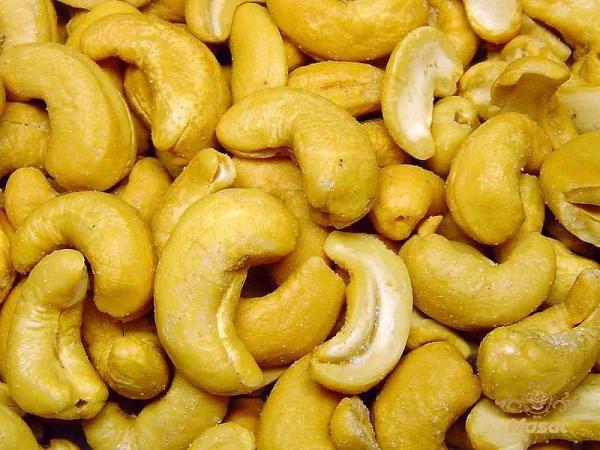
nut
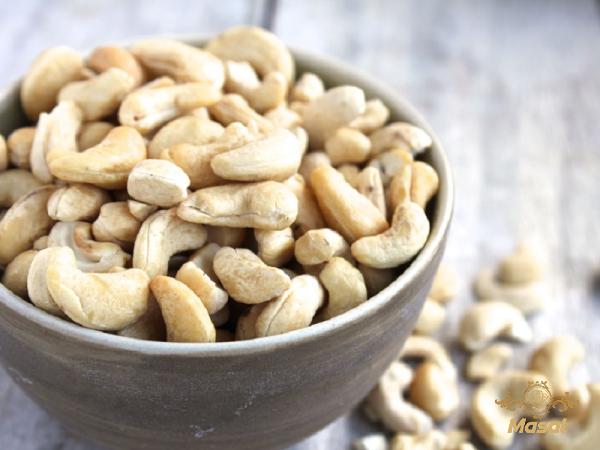 – Roasted Cashews: Roasted cashews have a similar nutritional profile to raw cashews but may have slightly lower antioxidant levels due to the heat exposure. The roasting process can cause a small reduction in certain vitamins and minerals, including vitamin C. However, roasted cashews retain their high levels of healthy fats, protein, and dietary fiber. Roasted cashews also have a slightly lower moisture content, resulting in a higher concentration of nutrients per gram. 3. Digestibility: – Raw Cashews: Some people may find raw cashews more difficult to digest due to their higher fiber content. The natural enzymes and phytic acid present in raw cashews can inhibit the full absorption of some nutrients and may cause digestive discomfort for individuals with sensitive digestive systems. – Roasted Cashews: The roasting process breaks down the enzymes and phytic acid present in raw cashews, making them easier to digest for most people. Roasted cashews are generally well-tolerated and less likely to cause digestive issues. 4. Culinary Usage: – Raw Cashews: Raw cashews are a versatile ingredient in both sweet and savory dishes. They can be used as a base for creamy sauces, dressings, and desserts. Raw cashews can also be soaked and blended into a smooth consistency to make dairy-free alternatives like cashew milk or cashew cheese. – Roasted Cashews: Roasted cashews are often enjoyed as a snack by themselves or added to various recipes. They are a popular ingredient in baked goods, stir-fries, salads, and trail mixes. The rich, roasted flavor of cashews adds depth and crunch to a wide range of dishes. 5. Culinary Benefits: – Raw Cashews: Raw cashews are an excellent choice for individuals looking to maximize the nutritional benefits of cashews. The higher vitamin C content in raw cashews makes them an ideal choice for individuals seeking to boost their immune system or improve their overall antioxidant intake. – Roasted Cashews: Roasted cashews offer a unique flavor and texture profile that is favored by many consumers. The roasting process enhances the natural taste of cashews, making them a delicious snack option. The crunchiness and rich flavor of roasted cashews make them a popular choice for snacking and culinary applications. 6. Shelf Life: – Raw Cashews: Raw cashews have a shorter shelf life compared to roasted cashews. Their higher moisture content makes them more susceptible to spoilage and rancidity. Raw cashews should be stored in an airtight container in a cool, dry place and consumed within a few months.
– Roasted Cashews: Roasted cashews have a similar nutritional profile to raw cashews but may have slightly lower antioxidant levels due to the heat exposure. The roasting process can cause a small reduction in certain vitamins and minerals, including vitamin C. However, roasted cashews retain their high levels of healthy fats, protein, and dietary fiber. Roasted cashews also have a slightly lower moisture content, resulting in a higher concentration of nutrients per gram. 3. Digestibility: – Raw Cashews: Some people may find raw cashews more difficult to digest due to their higher fiber content. The natural enzymes and phytic acid present in raw cashews can inhibit the full absorption of some nutrients and may cause digestive discomfort for individuals with sensitive digestive systems. – Roasted Cashews: The roasting process breaks down the enzymes and phytic acid present in raw cashews, making them easier to digest for most people. Roasted cashews are generally well-tolerated and less likely to cause digestive issues. 4. Culinary Usage: – Raw Cashews: Raw cashews are a versatile ingredient in both sweet and savory dishes. They can be used as a base for creamy sauces, dressings, and desserts. Raw cashews can also be soaked and blended into a smooth consistency to make dairy-free alternatives like cashew milk or cashew cheese. – Roasted Cashews: Roasted cashews are often enjoyed as a snack by themselves or added to various recipes. They are a popular ingredient in baked goods, stir-fries, salads, and trail mixes. The rich, roasted flavor of cashews adds depth and crunch to a wide range of dishes. 5. Culinary Benefits: – Raw Cashews: Raw cashews are an excellent choice for individuals looking to maximize the nutritional benefits of cashews. The higher vitamin C content in raw cashews makes them an ideal choice for individuals seeking to boost their immune system or improve their overall antioxidant intake. – Roasted Cashews: Roasted cashews offer a unique flavor and texture profile that is favored by many consumers. The roasting process enhances the natural taste of cashews, making them a delicious snack option. The crunchiness and rich flavor of roasted cashews make them a popular choice for snacking and culinary applications. 6. Shelf Life: – Raw Cashews: Raw cashews have a shorter shelf life compared to roasted cashews. Their higher moisture content makes them more susceptible to spoilage and rancidity. Raw cashews should be stored in an airtight container in a cool, dry place and consumed within a few months.
Specifications of nut
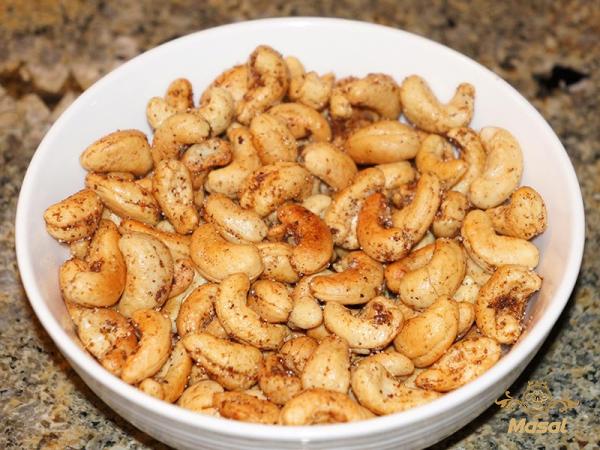 – Roasted Cashews: The roasting process extends the shelf life of cashews due to the removal of moisture. Roasted cashews can be stored in an airtight container at room temperature for several months without losing their quality or taste. However, they should be kept away from heat and moisture to prevent staling and spoilage. In conclusion, raw cashews and roasted cashews both offer unique characteristics and benefits. Raw cashews are mild in taste, have a soft texture, and are rich in heat-sensitive nutrients. On the other hand, roasted cashews have a savory flavor, crispy texture, and a longer shelf life. The choice between raw and roasted cashews ultimately depends on personal preference, culinary usage, and nutritional priorities. Raw Cashews vs. Roasted Cashews: A Detailed Comparison Introduction: Cashews are a beloved and nutritious nut enjoyed around the world. While roasted cashews are a popular choice, raw cashews also have their own unique benefits and characteristics. In this article, we will delve deeper into the differences between raw cashews and roasted cashews, examining their taste, nutritional value, digestibility, culinary usage, culinary benefits, and shelf life. Understanding these aspects will help businesses in the food industry cater to the diverse preferences and needs of their customers. 1. Taste and Texture: Raw Cashews: Raw cashews possess a mild and slightly sweet taste. The gentle flavor is ideal for those seeking a subtle nuttiness in their dishes. The creamy texture of raw cashews, combined with a slight crunch, adds a delightful mouthfeel to various culinary creations. Roasted Cashews: Roasting cashews brings out their natural richness and nutty flavor to a greater extent than raw cashews. The roasting process enhances the taste and provides a satisfying crunch. The intensified flavors of roasted cashews make them a popular snack choice among consumers. 2. Nutritional Value: Raw Cashews: Raw cashews are a powerhouse of nutrients. They are an excellent source of healthy fats, including monounsaturated and polyunsaturated fats, which contribute to heart health. Additionally, raw cashews are packed with protein, dietary fiber, vitamins, and minerals such as magnesium, phosphorus, copper, and zinc. Raw cashews also retain higher levels of certain heat-sensitive nutrients, notably vitamin C and some B vitamins. Roasted Cashews: The nutritional profile of roasted cashews is similar to that of raw cashews, with a slight reduction in certain heat-sensitive nutrients due to the roasting process. Despite this, roasted cashews still maintain their high levels of healthy fats, protein, and dietary fiber. The only noticeable variance is a decrease in antioxidant levels. 3. Digestibility: Raw Cashews: Some individuals may find raw cashews harder to digest due to their higher fiber content and the presence of natural enzymes and phytic acid.
– Roasted Cashews: The roasting process extends the shelf life of cashews due to the removal of moisture. Roasted cashews can be stored in an airtight container at room temperature for several months without losing their quality or taste. However, they should be kept away from heat and moisture to prevent staling and spoilage. In conclusion, raw cashews and roasted cashews both offer unique characteristics and benefits. Raw cashews are mild in taste, have a soft texture, and are rich in heat-sensitive nutrients. On the other hand, roasted cashews have a savory flavor, crispy texture, and a longer shelf life. The choice between raw and roasted cashews ultimately depends on personal preference, culinary usage, and nutritional priorities. Raw Cashews vs. Roasted Cashews: A Detailed Comparison Introduction: Cashews are a beloved and nutritious nut enjoyed around the world. While roasted cashews are a popular choice, raw cashews also have their own unique benefits and characteristics. In this article, we will delve deeper into the differences between raw cashews and roasted cashews, examining their taste, nutritional value, digestibility, culinary usage, culinary benefits, and shelf life. Understanding these aspects will help businesses in the food industry cater to the diverse preferences and needs of their customers. 1. Taste and Texture: Raw Cashews: Raw cashews possess a mild and slightly sweet taste. The gentle flavor is ideal for those seeking a subtle nuttiness in their dishes. The creamy texture of raw cashews, combined with a slight crunch, adds a delightful mouthfeel to various culinary creations. Roasted Cashews: Roasting cashews brings out their natural richness and nutty flavor to a greater extent than raw cashews. The roasting process enhances the taste and provides a satisfying crunch. The intensified flavors of roasted cashews make them a popular snack choice among consumers. 2. Nutritional Value: Raw Cashews: Raw cashews are a powerhouse of nutrients. They are an excellent source of healthy fats, including monounsaturated and polyunsaturated fats, which contribute to heart health. Additionally, raw cashews are packed with protein, dietary fiber, vitamins, and minerals such as magnesium, phosphorus, copper, and zinc. Raw cashews also retain higher levels of certain heat-sensitive nutrients, notably vitamin C and some B vitamins. Roasted Cashews: The nutritional profile of roasted cashews is similar to that of raw cashews, with a slight reduction in certain heat-sensitive nutrients due to the roasting process. Despite this, roasted cashews still maintain their high levels of healthy fats, protein, and dietary fiber. The only noticeable variance is a decrease in antioxidant levels. 3. Digestibility: Raw Cashews: Some individuals may find raw cashews harder to digest due to their higher fiber content and the presence of natural enzymes and phytic acid.
buy nut
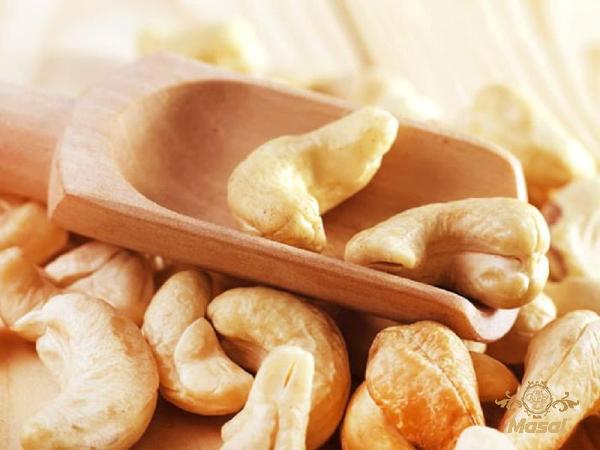 These compounds can impede the complete absorption of nutrients and cause digestive discomfort for those with sensitive digestive systems. Roasted Cashews: The roasting process breaks down the enzymes and phytic acid found in raw cashews, making them more easily digestible for the majority of consumers. Roasted cashews are generally well-tolerated and less likely to cause digestive issues. 4. Culinary Usage: Raw Cashews: Raw cashews are a versatile ingredient suitable for both sweet and savory dishes. They can be used as a base for creamy sauces, dressings, and desserts. When soaked and blended, raw cashews transform into a smooth consistency, making them an excellent dairy-free alternative for cashew milk or cashew cheese. Roasted Cashews: Roasted cashews are a popular choice for snacking, thanks to their enhanced flavor and crispy texture. In culinary applications, they bring a distinct richness and crunch to a variety of recipes. Roasted cashews are commonly added to baked goods, stir-fries, salads, and trail mixes, where their savory taste complements other ingredients. 5. Culinary Benefits: Raw Cashews: Raw cashews offer numerous culinary benefits. The higher vitamin C content in raw cashews makes them an ideal choice for boosting the immune system and increasing antioxidant intake. Their mild taste allows them to blend seamlessly into recipes without overpowering other flavors. Roasted Cashews: Roasted cashews provide a unique flavor and texture profile that many consumers prefer. The roasting process not only enhances the taste but also adds a pleasing crunch. When used in cooking or as a standalone snack, roasted cashews offer a satisfying culinary experience. 6. Shelf Life: Raw Cashews: Raw cashews have a shorter shelf life compared to roasted cashews due to their higher moisture content. To maintain their freshness, raw cashews should be stored in an airtight container in a cool, dry place and consumed within a few months. Care should be taken to avoid spoilage and rancidity. Roasted Cashews: The roasting process extends the shelf life of cashews by removing moisture. Roasted cashews can be stored in an airtight container at room temperature for several months without compromising their quality or taste. However, they should be kept away from heat and moisture to prevent staling and spoilage. Conclusion: Understanding the differences between raw cashews and roasted cashews allows businesses in the food industry to cater to the preferences and dietary needs of their customers. Raw cashews offer a mild taste, soft texture, and higher levels of certain heat-sensitive nutrients. On the other hand, roasted cashews provide a savory flavor profile, crisp texture, and longer shelf life. By offering both options, businesses can serve a wider range of customers who have varying culinary preferences, nutritional priorities, and digestive sensitivities.
These compounds can impede the complete absorption of nutrients and cause digestive discomfort for those with sensitive digestive systems. Roasted Cashews: The roasting process breaks down the enzymes and phytic acid found in raw cashews, making them more easily digestible for the majority of consumers. Roasted cashews are generally well-tolerated and less likely to cause digestive issues. 4. Culinary Usage: Raw Cashews: Raw cashews are a versatile ingredient suitable for both sweet and savory dishes. They can be used as a base for creamy sauces, dressings, and desserts. When soaked and blended, raw cashews transform into a smooth consistency, making them an excellent dairy-free alternative for cashew milk or cashew cheese. Roasted Cashews: Roasted cashews are a popular choice for snacking, thanks to their enhanced flavor and crispy texture. In culinary applications, they bring a distinct richness and crunch to a variety of recipes. Roasted cashews are commonly added to baked goods, stir-fries, salads, and trail mixes, where their savory taste complements other ingredients. 5. Culinary Benefits: Raw Cashews: Raw cashews offer numerous culinary benefits. The higher vitamin C content in raw cashews makes them an ideal choice for boosting the immune system and increasing antioxidant intake. Their mild taste allows them to blend seamlessly into recipes without overpowering other flavors. Roasted Cashews: Roasted cashews provide a unique flavor and texture profile that many consumers prefer. The roasting process not only enhances the taste but also adds a pleasing crunch. When used in cooking or as a standalone snack, roasted cashews offer a satisfying culinary experience. 6. Shelf Life: Raw Cashews: Raw cashews have a shorter shelf life compared to roasted cashews due to their higher moisture content. To maintain their freshness, raw cashews should be stored in an airtight container in a cool, dry place and consumed within a few months. Care should be taken to avoid spoilage and rancidity. Roasted Cashews: The roasting process extends the shelf life of cashews by removing moisture. Roasted cashews can be stored in an airtight container at room temperature for several months without compromising their quality or taste. However, they should be kept away from heat and moisture to prevent staling and spoilage. Conclusion: Understanding the differences between raw cashews and roasted cashews allows businesses in the food industry to cater to the preferences and dietary needs of their customers. Raw cashews offer a mild taste, soft texture, and higher levels of certain heat-sensitive nutrients. On the other hand, roasted cashews provide a savory flavor profile, crisp texture, and longer shelf life. By offering both options, businesses can serve a wider range of customers who have varying culinary preferences, nutritional priorities, and digestive sensitivities.



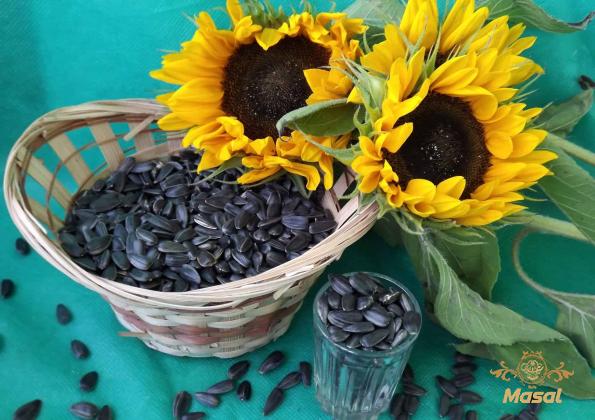
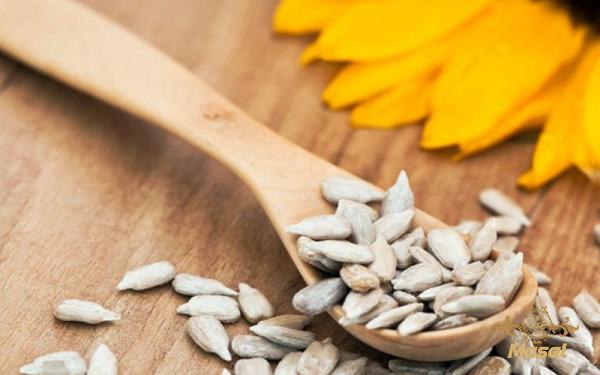
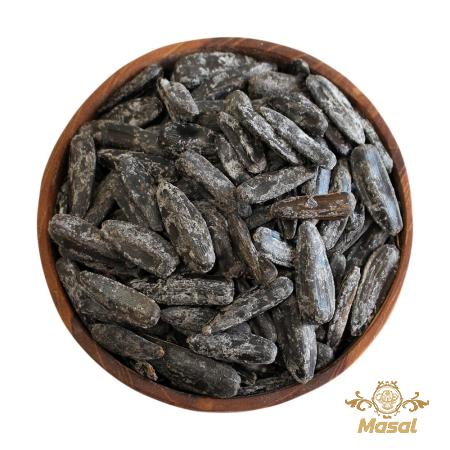
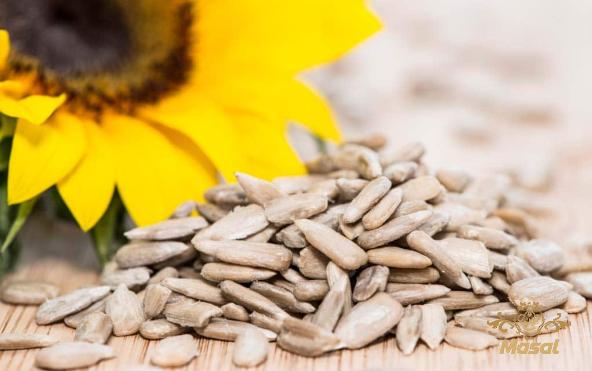
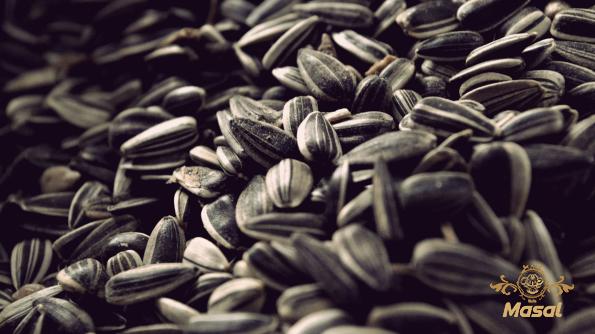

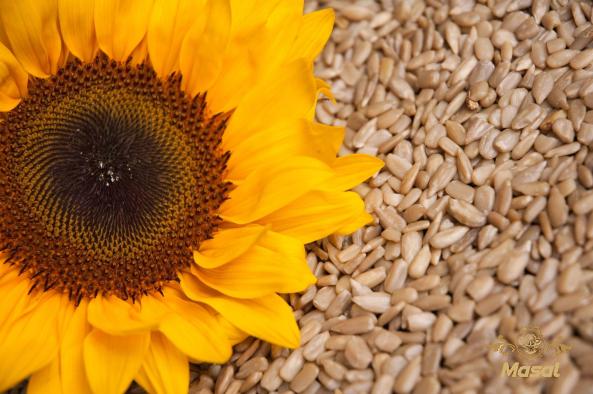
Your comment submitted.